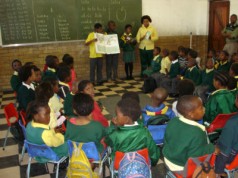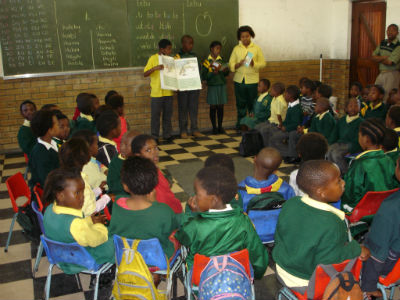African Language Education Policy for South Africa
19/06/2015On this blog we have long been tracking the increased calls for African languages to reclaim their places within education systems. In South Africa, as part of a new African languages policy by the Department of Basic Education, South African schools will soon be teaching African languages as part of the curriculum.

We strongly believe that as part of the economic awakening of Africa we are also witnessing a cultural awakening; part of this will be the increased identification with indigenous languages. Over the past few years we have seen more of a shift away from the old colonial languages to the languages of ancestry. From The Gambia to Nigeria to Kenya to South Africa, the call for the use of local languages gets louder and louder.
The announcement that from 2016 the Department of Education in South Africa will make it compulsory for all schools to offer one African language as part of their school curriculum is yet another affirmation of our belief.
“Currently, the National Curriculum Statement requires schools to offer two languages, one as a language of learning and teaching, and the other as an additional language. One of the two languages should be offered at Home Language level, and the other at either Home Language or First Additional Language (FAL) level.”
“We’ve done our homework, [being] particularly conscious of the importance of languages and communication in promoting social cohesion and nation-building. An investigation was conducted to determine properly how this should be done,” stated the Department.
Although it has lofty aims, one major issue that needs to be addressed is the actual lack of teachers who would be qualified to teach in any of these languages. The department claims it will be working hard to ensure more teachers are provided.
As with many other announcements, it will be a case of wait and see; however, it is again another positive step in the right direction in terms of protecting and promoting Africa’s valuable cultural and linguistic heritage.
Read more on this story here.

